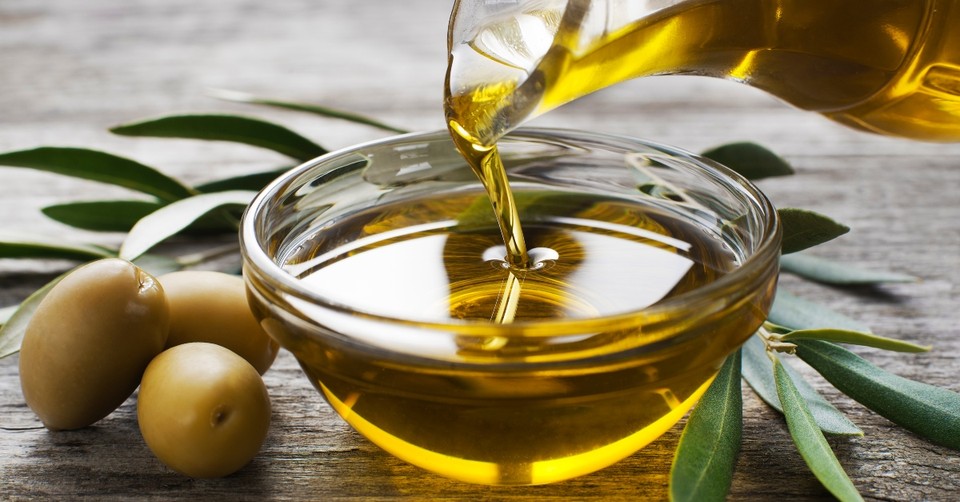Is Anointing Oil Biblical and Should We Use It Today?

Whenever I think of oils my thoughts eventually drift to several moments in church when friends and church members were anointed with oil. One moment that comes to mind was during worship one morning when the elders of the church gathered around a deacon who had just learned of a difficult medical diagnosis—the type that would shorten his life and change the trajectory of his family. As they prayed for healing, he was anointed with oil.
Another vivid moment was when I gave my life to Christ. I was anointed with oil. A cross was rubbed into my forehead and oil was rubbed on the foreheads of my newborns when they were just merely days old, as they were dedicated to God. But that’s not where my experience with oils ends. Oils are all the rage today as natural and homeopathic remedies to treat ailments, chronic health conditions, and improve health. Oils are even used in the Keto diet for weight loss, and we use oils to flavor our food, provide nutritional value, and to cook with. Oils are even used to diffuse the air of our homes as aromatherapy! Oil certainly has a valuable currency, but it is not just because we live in modern times. What people don’t know is that the use of oils goes clear back to the Bible. Anointing oils were used to anoint priests, furnishings in the tabernacle to mark them as holy, and to anoint the sick for healing.
Photo credit: ©Getty Images/dulezidar

What Does It Mean to Anoint with Oil?
Some question whether or not anointing oils are biblical and whether or not we should still use them today. So, what does it mean to be anointed and why does the Bible mention the use of oil? According to Dictionary.com, the word ‘anoint’ means to consecrate or make sacred in a ceremony that includes applying oil or to dedicate to the service of God. Anointing oil is mentioned twenty times in Scripture and is used five times in the New Testament.
To Set Apart
Israel commonly anointed the heads of their kings with oil. When we first meet young David in 1 Samuel 16, the prophet Samuel anointed him. Samuel also anointed the head of King Saul. Prophets were occasionally anointed into their position as well (1 Kings 19:16, Psalm 105:15, 1 Chronicles 16:22). When Priests were elected to their positions they too, were anointed (Exodus 29:29; Leviticus 16:32). But later, it seems this practice was only used for priests who became high priests.
Scripture also reveals the tabernacle, certain utensils, and furnishings used the tabernacle were anointed with holy in order to set those things apart (Exodus 25:6; Leviticus 8:30; Numbers 4:16). In fact, the recipe for anointing oil is found in Exodus 30:23-24:
“Take the finest spices: of liquid myrrh 500 shekels, and of sweet-smelling cinnamon half as much, that is, 250, and 250 of aromatic cane, and 500 of cassia, according to the shekel of the sanctuary, and a hin[e] of olive oil. And you shall make of these a sacred anointing oil blended as by the perfumer; it shall be a holy anointing oil.” It was also strictly forbidden to be produced for personal use (Exodus 30:32-33).
In the New Testament, the disciples anointed those who were in need as Christ had taught them. “They drove out many demons and anointed many sick people with oil and healed them,” Mark 6:13. This practice is commonly associated with the Roman Catholic Church but several denominations perform a more informal ceremony. The Anointing of The Sick is a biblically-based ceremony performed for those who are extremely ill or about to have a major medical procedure. This ceremony is a petition to God for the individual’s physical health and healing as well as spiritual healing and protection.
Photo credit: ©Getty Images/pcess609

Does Anointing Oil Have Supernatural Powers?
Anointing with oil is found in several places in the New Testament. James encouraged the process of anointing the sick with oil. Not because oil had special healing properties but because of the community, prayer, and encouragement that comes with it.
“Is anyone among you sick? Let them call the elders of the church to pray over them and anoint them with oil in the name of the Lord. And the prayer offered in faith will make the sick person well; the Lord will raise them up. If they have sinned, they will be forgiven,” (James 5:14-15).
This passage isn’t saying we are to call the elders of the church for every cold, cough, and sniffle. It says, “let them call” which indicates this person may be significantly ill. It also indicates that putting your needs before the elders likely puts your needs before the entire church. We go to our elders when we are in need because we trust and have faith that through their experience, they know how to handle our needs and express them to our church body to help us. So, why do we call on the elders of the church to anoint us with the oil? It’s not because the oil has supernatural powers in this situation, the point of anointing with oil symbolizes consecration to God as it does in (Numbers 3:3, Psalm 89:20, Psalm 23, and 1 Samuel 10:1).
Anointing with oil is the physical act of expressing the spiritual truth: we belong to God and we trust ourselves completely into His care. Praying with the elders expresses our needs in words and spirit while anointing with oil expresses this point in action.
Should We Anoint the Sick with Oil Today?
Should Christ-followers anoint with oils today? There is no reason not to so long as we remember anointing with oil is a symbolic act. Nothing in Scripture forbids the act but no Scripture commands it either because we have the Anointed One who leads us in all truth. He anoints us with His grace and wisdom as mentioned in 1 John 2:20, “But you have an anointing from the Holy One, and all of you know the truth.”
Anointing the sick with oil is a biblical practice mentioned in James 5:14-15, emphasizing the combination of prayer and anointing for healing. However, the core message focuses on the power of faithful prayer and communal support, not necessarily on the oil itself. The practice can be a meaningful ritual but is not a strict requirement for healing prayers.
Photo credit: ©Getty Images/gorodenkoff

Who Is the Anointed One?
In the Old Testament, we are promised a “Deliverer” who is our Anointed and Messiah. The nature of His anointing isn’t with oil—it’s spiritual.
“The Spirit of the Sovereign Lord is on me, because the Lord has anointed me to proclaim good news to the poor. He has sent me to bind up the brokenhearted, to proclaim freedom for the captives and release from darkness for the prisoners,” Isaiah 61:1
"The Spirit of the Lord is on me, because he has anointed me to proclaim good news to the poor. He has sent me to proclaim freedom for the prisoners and recovery of sight for the blind, to set the oppressed free,” Luke 4:18
“The kings of the earth rise up and the rulers band together against the Lord and against his anointed, saying,” Psalm 2:2
“After the sixty-two 'sevens,' the Anointed One will be put to death and will have nothing.[1] The people of the ruler who will come will destroy the city and the sanctuary. The end will come like a flood: War will continue until the end, and desolations have been decreed,” Daniel 9:26
These passages declare Jesus is our anointed Savoir who then proclaims these words in Luke 4:18. Christ says He anointed One who is anointed with the Holy Spirit. Several passages in the New Testament confirm He is indeed the Anointed (John 1:41; Acts 9:22; Acts 17:2, 3; Acts 18:4, 28).
Photo Credit: ©GettyImages/Wenping-Zheng
Originally published August 07, 2024.









